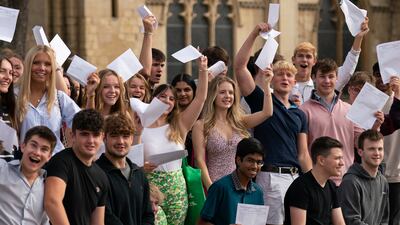The Russell Group has awarded a fifth of places at its 24 institutions across the UK to overseas students, it has emerged.
This year’s A-level results left many pupils scrambling for places at universities through clearing due to a drop in top marks.
The Conservative-led government’s bid to tackle grade inflation resulted in exams marked harder this year, leaving large a lot of school-leavers disappointed in their results.
Exams were held this year for the first time since before the onset of the Covid-19 pandemic, with pupils graduating in the last two years graded by their teachers.
About 34,000, or 22.4 per cent, of the 152,000 places at Britain’s top universities have been allotted to international students.
Learners coming from abroad pay higher fees than UK students.
The Russell Group includes Oxford, Cambridge, Cardiff, Edinburgh and Southampton universities, as well as leading London institutions such as King’s, Imperial, UCL and Queen Mary.
Four in 10 British candidates who applied to top universities this summer were rejected, research has found, often in favour of people from abroad.
Many of Britain’s most selective universities were oversubscribed when grades shot up during the pandemic.
It meant that nine Russell Group universities, excluding Oxbridge, offered students cash and other incentives totalling about £9 million ($10.8m) to defer their places last year.
Space is particularly tight at Oxford and Cambridge as many first and third-year students live in college accommodation and have one-to-one tutorials.
The Universities and Colleges Admissions Service (Ucas) said overseas students account for 12.3 per cent of the total full-time undergraduate applications it accepted this year. This was down from a high of 14.7 per cent in 2019.
Places for students from China, India and Nigeria are all up — increasing by 35 per cent, 27 per cent and 43 per cent on last year, respectively, Ucas said.
A total of 20,360 students did not secure a place this year, Ucas said, down from 24,260 in 2019.









